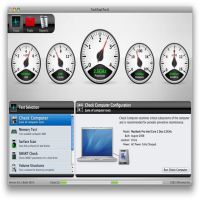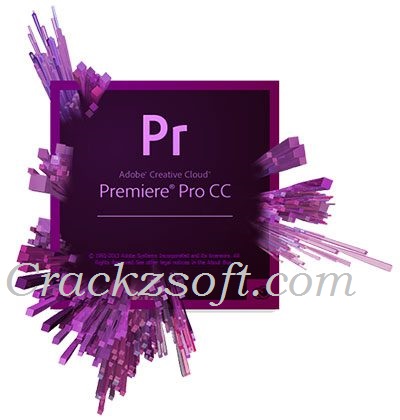Adobe Premiere Cc 2017 V.11.0 (mac Os X)
![]()
- Adobe Premiere Cc 2017 V.11.0 (mac Os X) Windows 10
- Adobe Premiere Cc 2017 V.11.0 (mac Os X) 64-bit
- Adobe Premiere Cc 2017 V11.0 (mac Os X)
Crashing in my version of Premiere Pro CC 2017.0.2 v 11.0.2 (47) has become intolerable. When manipulating clips in the main timeline of my project, I get beachballed and have to Force Quit. It happens with Ripple Edit, copy/paste, even moving clips vertically from one video channel to another. It happens roughly every 10 minutes. Later on we will start covering Mac OS X issues as well. So if your Adobe Premiere Pro CC 2017 v11.0.1 x64 won’t start after installation. Then don’t worry because of Adobe Premiere Pro CC 2017 v11.0.1 x64 errors and problems. So if you get any errors such as Adobe Premiere Pro CC 2017 v11.0.1 x64 is crashed.

Adobe Creative Cloud has moved to native Operating System (OS) support for Dolby Digital decoding (reading Dolby files) and is no longer providing support for encoding (writing) Dolby Digital and Dolby Digital Plus sound formats in the current and future releases of Creative Cloud.
These changes affect the following Creative Cloud products:
- Adobe Premiere Pro
- Adobe After Effects
- Adobe Audition
- Adobe Photoshop
- Adobe Photoshop Lightroom
- Adobe Photoshop Lightroom Classic
- Adobe Media Encoder
- Adobe Prelude
- Adobe Premiere Elements
Both Windows and OS X operating systems (Windows 8.1 or above and Mac OS X .11 or above) contain native support for Dolby decoding functions. Please update to the latest version of your operating system.
Dolby Audio decode support for Windows operating systems
If you run a Windows operating system on your computer, all recent versions now support some form of Operating System (OS) level decode for Dolby audio.

There are a few exceptions, though:
- Windows 10N/10KN: Windows 10N/10KN version does not include the media package required to decode AC-3. You can find instructions on how to fix this issue in the following article on the Microsoft support site: Media feature pack for Windows 10 N and Windows 10 KN editions.
- Windows 8.1N/8.1KN: Windows 8.1N/8.1KN version does not include the media package required to decode AC-3. You can find instructions on how to fix this issue in the following article on the Microsoft support site: Media feature pack for Windows 8.1 N and Windows 8.1 KN editions.
- Windows 10 LTSC build 1803: This build of Windows does not include the Dolby codec. You need to upgrade the LTSC build to the full Windows license.
Older versions of Windows:
- Windows 7: Windows 7 does not include the media package required to decode AC-3. The best solution is to upgrade to Windows 8 or Windows 10.
Dolby Audio decode support for Mac operating systems
If you run a Mac operating system on your computer, macOS 10.11 and later versions support decode for Dolby audio.
For those requiring Dolby encoding capabilities, please consider the following third party option: Dolby – Media Producer Suite.
For more information, please contact Adobe Customer Care.
Decode/Playback: No – as a digital format decode either works or does not work.
Encode: This is not possible with the OS integrated Dolby Technology. However, most encoding happens as part of distribution, not during the creative process where Adobe tools are primarily used.
Adobe recommends that you update to the latest version of your Creative Cloud software and also update to a more secure operating system (Windows 10 preferred). If you’re unable to do so, please contact the Adobe Customer Care team.
Adobe Premiere Cc 2017 V.11.0 (mac Os X) Windows 10
No, there is no change in the HDR image support by Premiere Pro.
Adobe Premiere Cc 2017 V.11.0 (mac Os X) 64-bit

Adobe Premiere Cc 2017 V11.0 (mac Os X)
If you are accessing a project with the latest release of Creative Cloud software, there is no impact. The OS technology can decode any Dolby encoded source media.
It is never our goal to remove capabilities from our products. Unfortunately in this case, we had no option but to change the way we accessed Dolby functionality and for some users this caused a disruption in workflow. Ultimately – we’re sorry that you’ve experienced any difficulty, below are some suggestions to both address the current situation and best practices for moving forward.
- Move to the latest OS and application version.
- Recover your CC2017 versions that included Dolby.
- Use a system backup or image from when you had CC 2017 installed.
For Windows, consider an update to CC 2018.
For Mac users, macOS upgrades are free.
This is our strongest suggestion. All windows versions above Windows 8.1 and Mac OS 10.11 or above contain native support for Dolby decoding functions. If you need to migrate work in progress, use a third-party utility like Handbrake (a free open-source video transcoder) to convert your MTS/ACS files. Rename the files and reimport them into Premiere Pro. Then, clear your media cache.
If you can't move to the lastest OS and CC2018 application version, recovering your CC2017 application including Dolby functionality is another potential path.
On Windows, try to use Windows Restore to roll back the state of applications on your computer to before that time.
On a Mac, you'd use Apple's Time Machine.
These back up versions will restore your machine to it’s previous state. To prevent that changing, when upgrading Creative Cloud apps, use 'Advanced Options' in the Desktop app to retain older versions rather than the default behavior, which is removing them.
You could possibly use either backup to get back to where you were before. At a minimum, you'll need both the Premiere Pro and Adobe Media Encoder apps.
Going forward, when upgrading Creative Cloud apps, use 'Advanced Options' in the Desktop app to retain older versions rather than the default behavior, which is removing them.